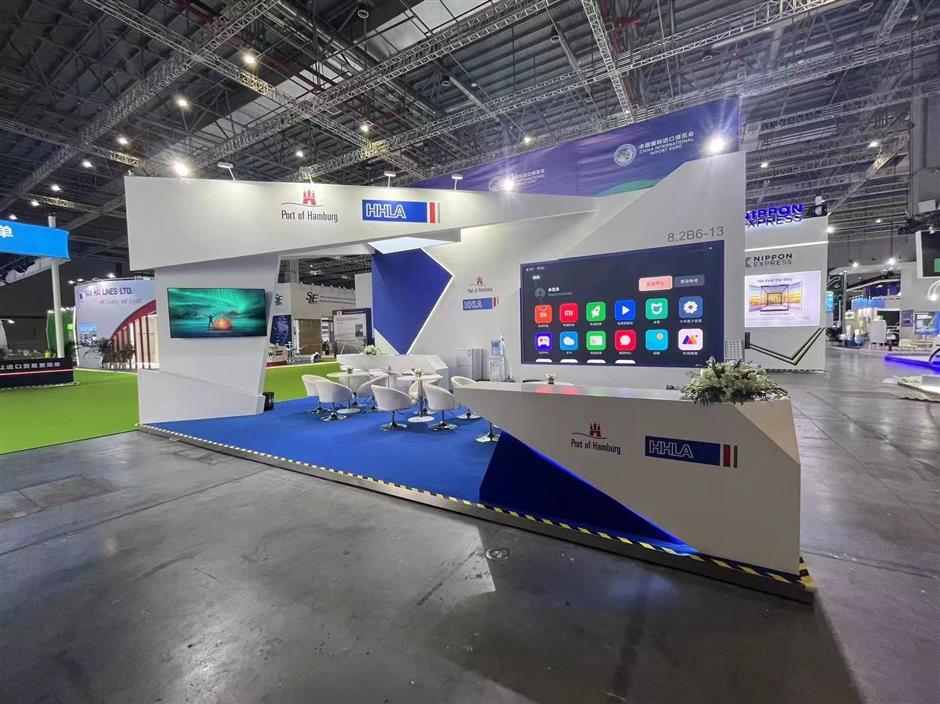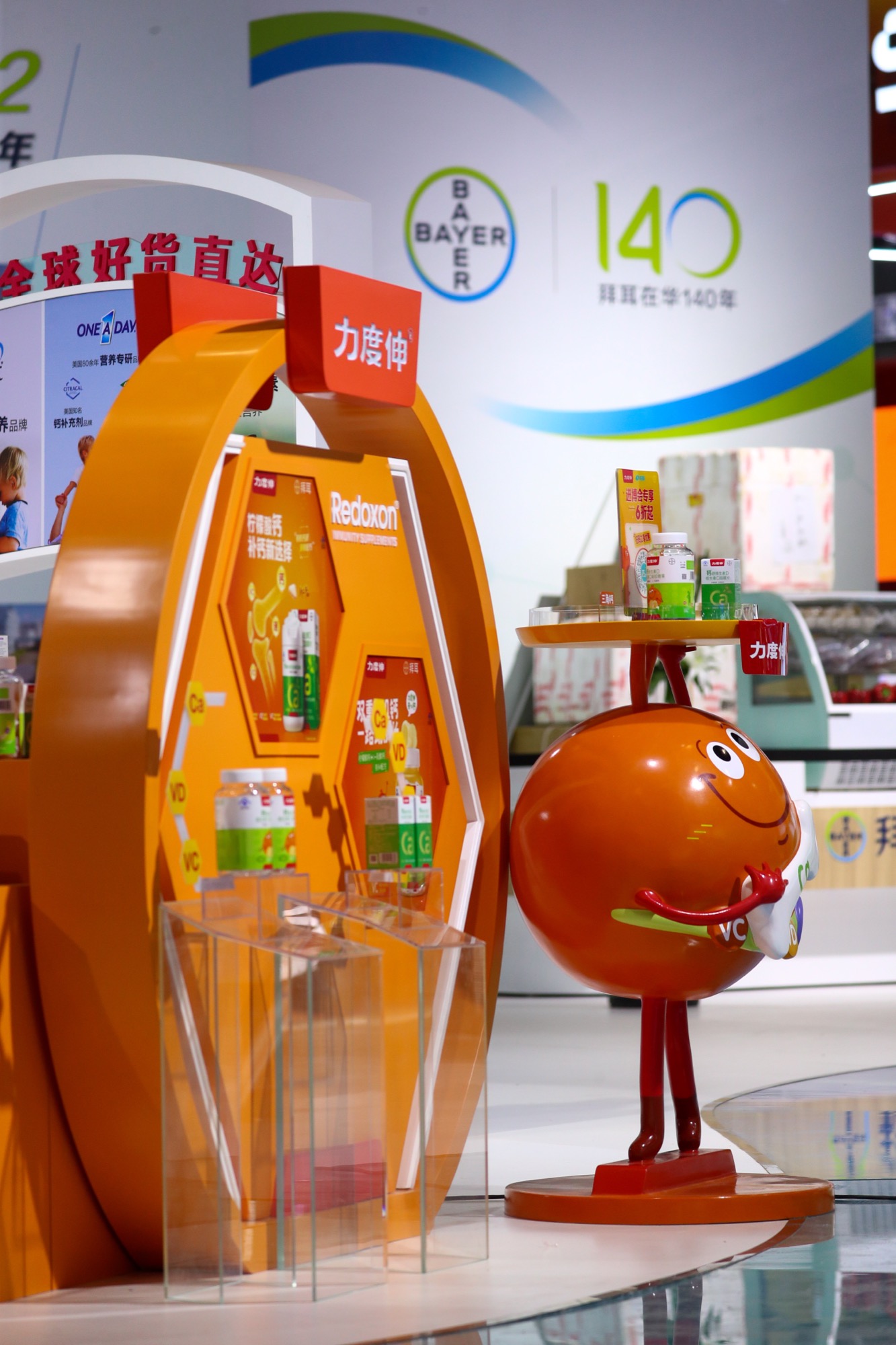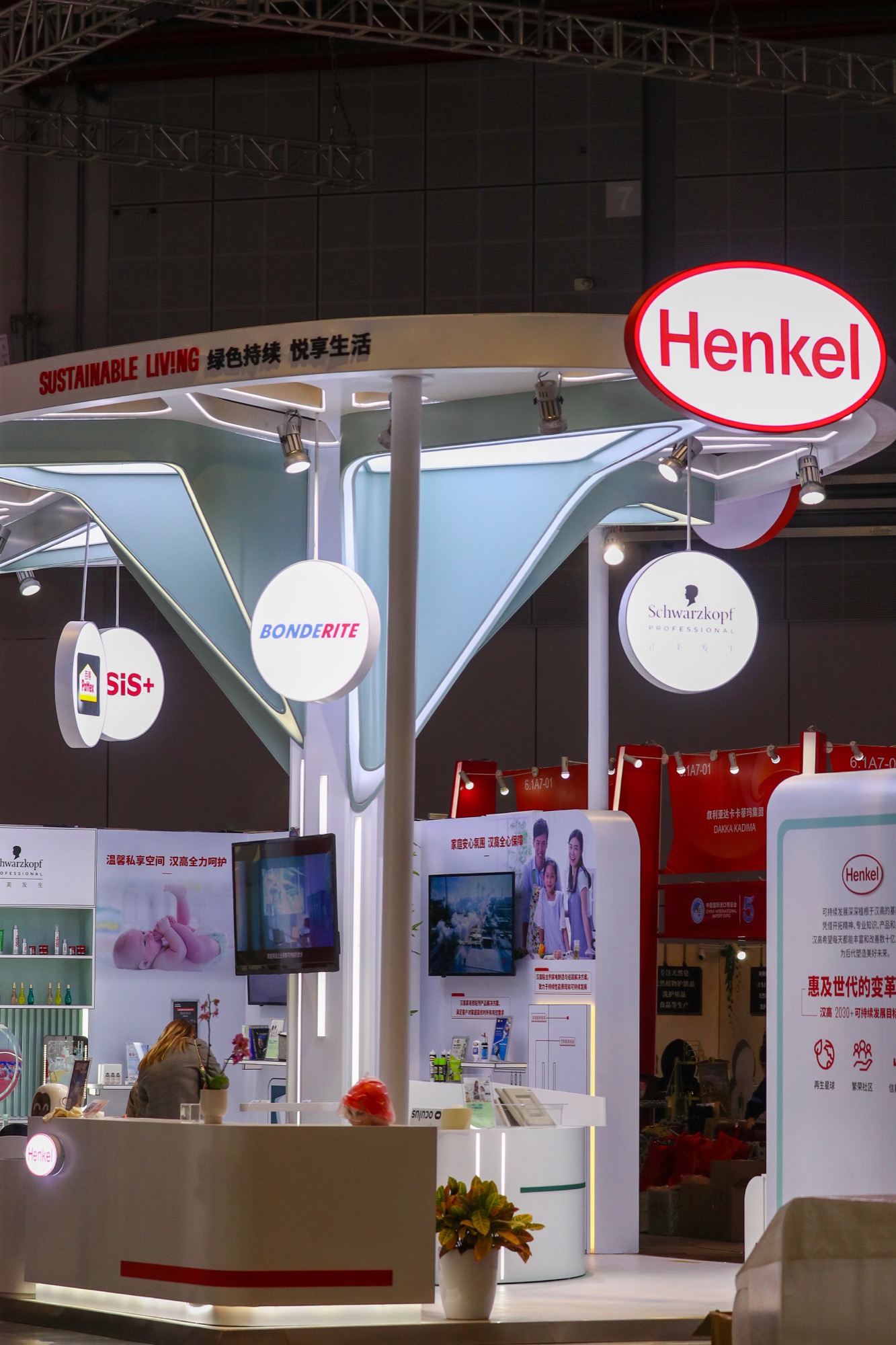German companies among a strong league of EU to further deepen partnerships in China at CIIE
China's strong trade relations with Germany are set to be further strengthened with major multinational companies' remarkable presence at the China International Import Expo.
China has remained Germany's most important trading partner in 2021 for the sixth consecutive year with volume exceeding 245 billion euro (US$246 billion) in 2021, as bilateral trade, investment and many more innovation initiatives continue to flow into the country.
Bilateral trade between China and Germany rose 0.9 percent on a yearly basis to US$173.57 billion in the first nine months of this year, according to data released by the General Administration of Customs (GAC), still positive considering the impact of the pandemic.
China's share of German imports rose to 12.4 percent in the first half of 2022, compared with 3.4 percent in 2000, while German imports of Chinese goods surged in value terms by 45.7 percent year on year during that six-month period, the German Economic Institute (IW) found.
With the increasing presence of German companies' investment and innovative initiatives, businesses are keen to make their presence known at the 5th CIIE, which will be unveiled on Saturday.

-

The Germany Pavillion at the 5th CIIE
Dong Jun / SHINE -

The EU's investment in China ballooned in the first eight months of this year with a stunning 123.7 percent year-on-year increase, according to China's Ministry of Commerce on Thursday. The EU's FDI inflow into China jumped an astonishing 123.7 percent from January to August.
Consultancy Rhodium Group pointed out that European FDI into China has been resilient in terms of volume and is concentrated in such sectors as automotive, food processing, pharmaceutical and biotechnology, chemical, and manufacturing,
Its latest study finds that four countries – Germany, the Netherlands, the UK and France – made up 87 percent of the total investment value, on average, over the past four years, compared with 69 percent in the 10 years prior.
It also noted that European investment has become much more concentrated, both in terms of the companies that are investing, the countries they come from, and the sectors in which they operate.
German companies' presence in China in the capital-intensive manufacturing and engineering industries has been notable.
The BASF Zhanjiang Verbund site in Guangdong Province was officially put into operation in September as scheduled.
It is expected to accrue a total investment of up to 10 billion euro by 2030. It's the first wholly foreign-funded project in China's heavy chemical industry and covers an area of around 9 square kilometers.
It seeks to expand its capacity for engineering plastic compounds in the Asia-Pacific region with growing demand from industries such as automotives, electronics and new-energy vehicles.
BASF's sales in China in the first three quarters rose 5.8 percent year-on-year to 9.2 billion euros.
The third phase of the BASF Innovation Campus in Shanghai is due to be completed in early 2023.

The Port of Hamburg's presence at the 5th CIIE
The Port of Hamburg will be present at the CIIE for the fifth year in a row. China is the German port's most important trade partner, and one in three containers handled at the Port of Hamburg comes from or will be shipped to China.
The Hamburg Liaison Office China, as the official representative office of Port of Hamburg in China, will be representing Port of Hamburg Marketing (HHM), Hamburger Hafen und Logistik AG (HHLA) and MEC Container Security Systems GmbH to meet the Chinese partners and potential customers at the CIIE site.
"Since its inauguration the CIIE has become an important meeting place for representatives of the transport and logistics industry and an integral part of our activities in China," said Axel Mattern, CEO of HHM. "Over the years, our booth has become larger, and both the number of visitors and the overall networking quality have increased.
The container throughput trend in the Port of Hamburg in the first half of 2022 was more positive than expected. Compared with the major competing ports Northern Europe that all reported downturns in container handling, Hamburg was the only major port in the range to report an increase.

At last year's CIIE, German companies already had a strong presence. A total of 176 German enterprises showcased their products and services last year and reached a total intended contract value of US$16.9 billion at the previous expo.
The German Joint Pavilions organized by AHK Greater China can be found in a total of three exhibition halls this year, showcasing products from the areas of Food & Agriculture, Intelligent Industry & Information, and Consumer Goods.
It's hosting companies and trading firms of various sizes with the largest number of companies present at the Intelligent Industry and Information Technology subsection at Hall 3 of the NECC.
More than two dozen exhibitors and representative offices of German federal states are highlighting their products and services under the brand "Made in Germany" with a total exhibition space of 986 square meters.
Teka Appliances Group is a first-time attendee at this year's expo with professional kitchenware and toiletry brands Teka and Kuppersbusch. It is presenting electric cooking solutions to respond to carbon-cutting initiatives and green energy trends.

-
 Ti Gong
Ti Gong -

Repeat participants at the CIIE have already seen benefits and many more products are following suit.
Kärcher has scheduled the world debut of its robot series and integrated cleaning robot KIRA B this year.
The intelligent cleaning technology product was conceived through in-depth R&D and innovation tailored to Chinese market demand.
It combines sweeping, scrubbing, vacuuming and mopping functions, which can solve the comprehensive floor cleaning needs of buildings with one product.
Its AI intelligent cleaning robots are expected to further improve Kärcher's core product matrix in the field of intelligent cleaning robots and promote the company's leading position.

Bayer is among the first batch of companies to present at the newly-established crop seed industry subsection at this year's CIIE.
"As China's most significant import exhibition, the CIIE very much facilitates international companies like Bayer to share and grow together with China's economic development," said Werner Baumann, Chairman of the Board of Management of Bayer AG.
"Since Bayer's first presence in the event five years ago, we've been working closely with our Chinese partners to introduce our latest research achievements through this national platform."
Two innovative prescription drugs which were presented at the 3rd and 4th CIIE garnered widespread attention and gained approval from the National Medical Products Administration in the first half of this year.
The infant care product line from Elevit called "Little Elevit" is making its world premiere this year with two new products, Little Elevit vitamin D soft capsules and calcium and zinc vitamin D soft capsules.
Bayer has already signed up for the 6th CIIE and said it will continue to harness its global innovation network and leverage this event that connects the entire world to continue to improve the lives of Chinese patients, customers, and growers.
China is not only an important market for German companies to conduct local research and development but also an emerging hub for global markets.
German businesses' local innovation and partnerships have been picking up speed.
German Chamber of Commerce in China's joint survey with BearingPoint this year found that nearly half of respondents state they conduct research (49 percent) and development (52 percent) in China for the Chinese market.
Roughly one-third of respondents do research (25 percent) and development (33 percent) in China for global markets.
Furthermore, 43 percent of German companies demand more autonomy from their headquarters in terms of innovative activities. One-quarter (24 percent) even wish for their Chinese subsidiary to be able to conduct global R&D.
Technologies and solutions present at the CIIE have managed to gain attention and become solid business models.
Boehringer Ingelheim's digital sound-monitoring tool which can identify pigs in respiratory distress by monitoring their coughs was piloted in selected pig barns after its first appearance at the second CIIE.
The Ingelheim-based company set up its Asian Veterinary R&D Center in China and initiated its R&D project for swine fever vaccines in 2012.

Siemens Healthineers China welcomed its first batch of local collaborators one year after the launch of its Shanghai Innovation Center in September last year.
It has signed collaboration deals with local players such as Vivolight and Subtle Medical for solutions in precision diagnosis, enhanced medical imaging, and cancer therapy.
"We have managed to build up a strong local supply chain to stay resilient through the uncertainty brought by the pandemic, thanks to a long-term commitment to the China market," said Siemens Healthineers China president Jerry Wang.
It eyes potential collaboration with local startups in terms of immunotherapy cancer treatments under similar co-creation models to expand its local services.
"We feel our development strategy fits well with China's broader direction to encourage local innovation, and we'll continue to be guided by our localized innovation strategy in the future to optimize local research and supply chains," he added.
It also hopes to build an innovation ecosystem through deep collaboration with the Medical Valley European Metropolitan Region Nuremberg (EMN) Association to foster partnerships between European and Chinese startups.

Rajat Agarwal, president of Henkel China, said the company's footprint in China is deep and the large domestic market plays an important role in its global operations.
"We believe that China will continue to accelerate innovation-led growth and high-quality development, and this new stage of economic transformation further fosters innovation and sustainability, providing ample opportunities for multinationals like Henkel," Agarwal said.
China is Henkel's third-largest and fastest-growing market and continues to invest in local R&D and production capabilities to enhance tailor-made products and solutions.
Henkel has invested in a material science-focused fund in China, strengthening its access to the local fast-growing startup scene. Its first Application Engineering Center was unveiled in the city of Dongguan in Guangdong Province in August.
In the sport and cultural field, cross-border collaboration is also set to be further strengthened.
German-based sports company Adidas reached a strategic cooperation agreement with the Chinese Literature and Art Foundation (CLAF) with a three-year partnership to promote Chinese culture and sport.
Their collaboration will range from university sporting activities to global initiatives to promote young Chinese artists and designers.
Adidas is increasingly turning to co-creation and development initiatives with local designers and artists to promote the functionality of sports as well as cultural inspiration for new designs.
It sets out to engage world-class local Chinese designers and artists to further inject Chinese culture-inspired creativity into areas such as product and store design both in China and other markets.
The company said it looks forward to leveraging its partnership with the CLAF to write a new chapter of sport and culture in China in addition to helping China share its unique culture with the rest of the world.




















